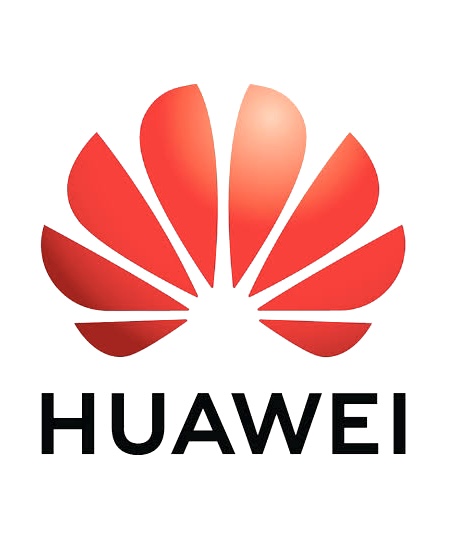ISLAMABAD, May 26 – Huawei Middle East and Central Asia on Thursday afternoon joined a high-level media roundtable on day two of the GSMA M360 EURASIA 2023 conference in Baku, Azerbaijan, to discuss the latest telecom cybersecurity trends, innovations, and contribute methods to tackle the associated threats among industry actors together.
The open discussion aimed at aligning strategic priorities for the region, deepening engagement and steering collaborative efforts in the industry to advance collective action for cyber stability in the telecom industry.
Under the theme of “Build more secure and resilient telecom networks to efficiently support the future digital economy,” participants in the panel discussed various topics, including collaborations among network operators and their partners, suppliers and customers in defending against telecom cybersecurity, how regulators could promote local telecom industry’s cybersecurity development, and the role that cybersecurity plays in safeguarding critical information infrastructure and the digital economy, among other topics.
Dr. Tural Mammadov, Director of Director of the Azerbaijan Computer Emergency Response Center (CERT), was joined in the panel by Dr. Mohammad Khaled, Director, Business Development and Strategic projects, e& enterprise, Dr. Haitham Hilal Al Hajri, Sr. Executive – Cyber Security Projects, Oman National CERT, Dr. Elvin Balajanov, Chairman of the Board, Azerbaijan Cybersecurity Organization Association and Dr. Aloysius Cheang, Chief Security Officer, Huawei Middle East & Central Asia.
The telecom industry has become an integral part of modern society and is recognized as a critical infrastructure industry (CII). It plays a vital role in connecting people, businesses and governments, facilitating communication, information sharing and commerce on a global scale.
However, as telecom networks become more complex and interconnected, they become more vulnerable to cyber threats. Cybersecurity of telecoms is a critical component of national security, and therefore, it is essential to bring together telecom stakeholders to promote the development and optimization of telecom cybersecurity. This includes working closely with telecom service providers, equipment manufacturers, government agencies, and other stakeholders to identify and mitigate cybersecurity risks, develop and implement best practices, and raise awareness about the importance of cybersecurity in telecom.
Dr. Tural Mammadov thanked the organizers, participants and sponsors for arranging the event in Baku while reiterating the country’s commitment to the highest cybersecurity standards. “We join the international community in highlighting the risks posed by cybercrime. Likewise, we want to work with our global partners towards joint actions in defending telecom networks, which is critical in leveraging all the digital economy opportunities.”
Dr. Mohammad Khaled emphasized, “As an operator, securing our networks against cyber threats and creating safe digital cyberspace remains one of our most important tasks, especially as we enter a new era of connectivity and cognitive technologies. We realize that cyber threats are global in nature – and solutions must be as well. We are therefore proud to be here, joining other partners and stakeholders in finding joint outcomes to a common threat.”
“Today, the progression towards an interconnected cyber world has become a reality. Unfortunately, this has increased the threats from malicious actors and protecting our digital assets is a concern for all countries.” Dr. Haitham Hilal Al Hajri indicated, “Cybersecurity is a shared responsibility and national security agencies, telecom providers and ICT industry players should work together to achieve a more robust cybersecurity posture, so telecom providers can continue to deliver cutting-edge digital services unimpeded by cyber threats.”
Dr. Elvin Balajanov noted, “We are proud to host our partners and friends here in Azerbaijan as we address the cyber risks that threaten the health of our networks and, by extension, our socioeconomic growth. Safeguarding our critical information infrastructure is a key government priority in Azerbaijan as these critical systems possess functionality that, if disrupted, can pose significant harm to the interests of the state, society, and citizens. Therefore, it is crucial that telecommunications providers implement appropriate safeguards, protocols, and technologies to mitigate risks and protect our critical information infrastructure.”
“We need to consider how to meet the increasingly strict compliance requirements of regulators on the one hand and how to provide secure and trustworthy products and services that fulfill our commitments to customers on the other, ” Dr. Aloysius Cheang said. “We must also embrace a defense-in-depth approach to provide better security, ensure business continuity, resiliency, improve efficiency and customer experience while always protecting user privacy.”
Global standards, internationally agreed processes and industry best practices are critical in addressing cyber threats effectively. As such, building and implementing an end-to-end global cybersecurity and privacy protection assurance system is one of Huawei’s key strategies. In compliance with applicable laws and regulations in the countries where it operates and international standards, Huawei has created an effective, sustainable, and reliable cybersecurity and privacy protection assurance system by referring to the requirements of regulators and customers and industry best practices.
















